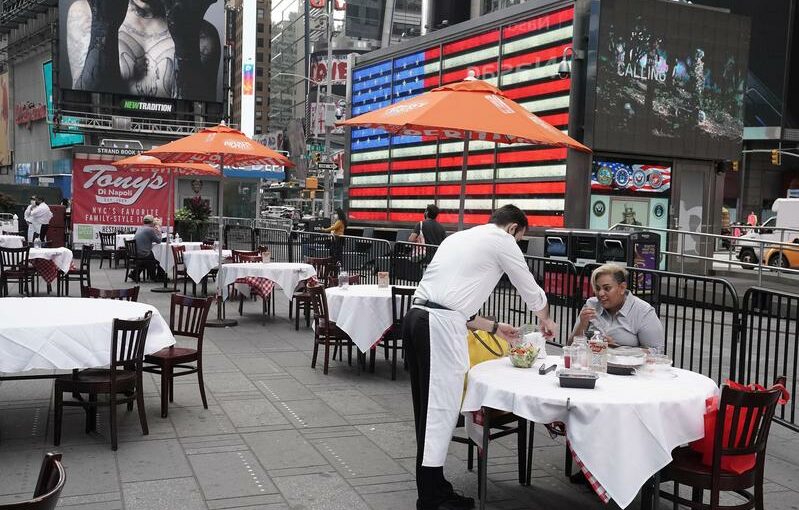FREDERICKSBURG, Va. (Reuters) – The reality has not yet sunk in for Pepe Diaz that the beloved deli he ran with his brother for more than 30 years is permanently shut.
“The camaraderie with all the students and the regular customers, I miss all that,” he said, outside Howard Deli in Washington.
Before the pandemic, the shop had been a lively neighborhood hangout. But sales plummeted without the foot traffic of students from Howard University and the local high school.
Making matters worse, Diaz’s brother Kenny Gilmore suffered several strokes. With bills piling up, the brothers closed the deli in January.
“This had to be the worst. Everything else we weathered through,” Diaz said of the pandemic.
Howard Deli is not alone.
By the end of 2020, about 17% of all U.S. restaurants – about 110,000 – had closed long term or shuttered for good, according to the National Restaurant Association.
Matt Strickland is determined that his business will not be next.
The owner of Gourmeltz in Fredericksburg, Virginia, is continuing to operate his restaurant even though he said his license had been revoked by health officials for failing to comply with COVID-19 restrictions.
“The people who are putting these mandates and regulations on us, they haven’t missed one paycheck. They haven’t suffered through this like we have,” said Strickland.
Strickland said he has many supporters in the community. But health officials say they have received more than 50 complaints about Gourmeltz over its flouting of safety measures such as wearing masks, according to local media.
The Spotsylvania County health department did not respond to a request for comment.
The economic pain goes well beyond the restaurant industry. The U.S. economy lost 22 million jobs at the height of the pandemic and is still 10 million jobs short of where it was a year ago.
Before the pandemic, Sharon Clark spent 11 years as a full-time jazz singer, traveling to Russia, France and South Africa.
So when a year’s worth of concerts were canceled in early 2020, she panicked.
“For the first time in my whole 11 years, I was asking myself and asking God, ‘What am I going to do?’” said Clark, a single mother of a teenage daughter. “Who’s going to keep the cell phones on… who’s going to pay the cable bill?”
Clark said she feels optimistic that her singing work will pick up by summer.
“I’m going to sing until I can’t anymore. But I’m going to learn to do something else – just in case,” she said.
Source: Read Full Article
